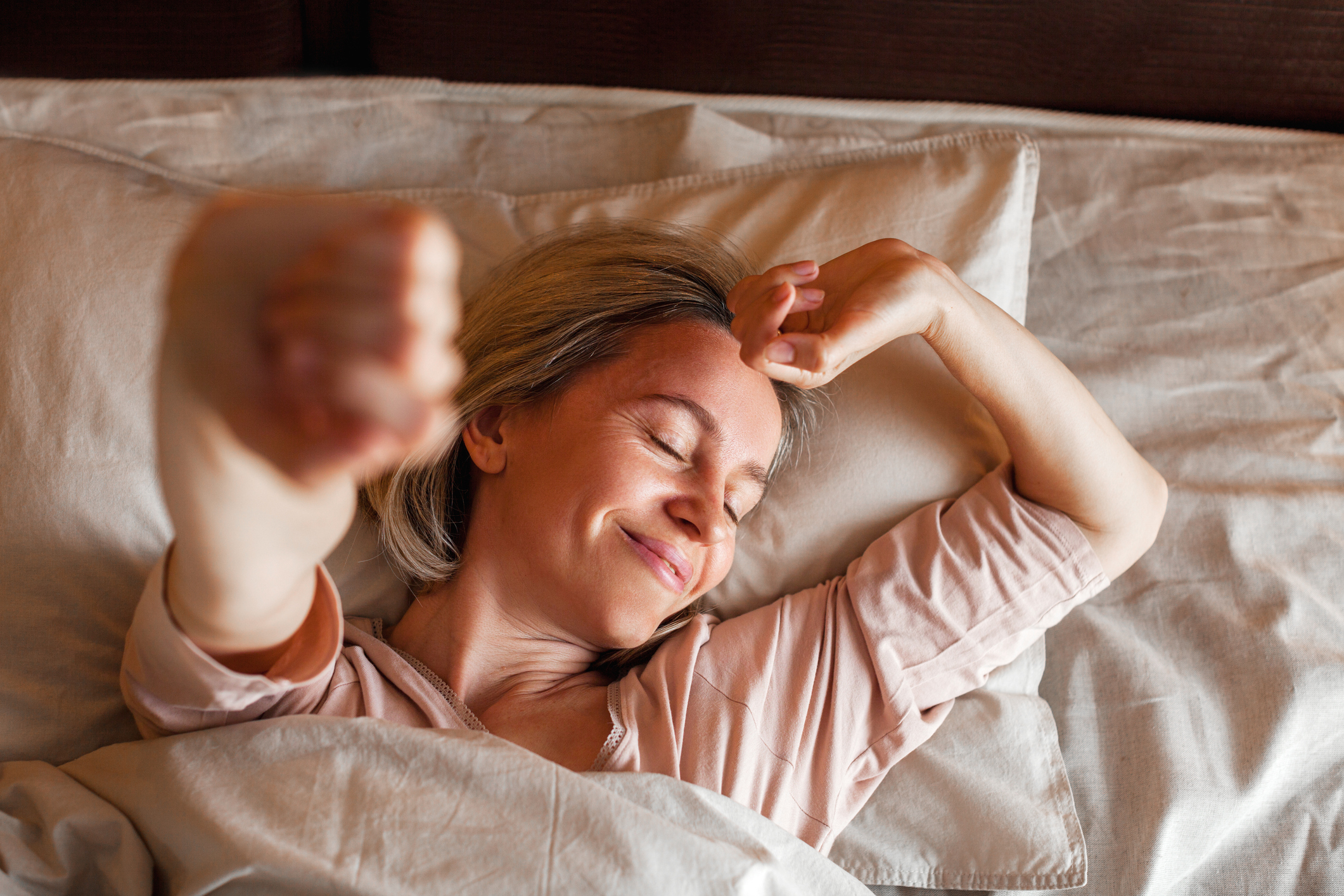Get Easy Health Digest™ in your inbox and don’t miss a thing when you subscribe today. Plus, get the free bonus report, Mother Nature’s Tips, Tricks and Remedies for Cholesterol, Blood Pressure & Blood Sugar as my way of saying welcome to the community!
The daytime secret to better sleep at night

A lot has been written about the critical importance of sleep, and about why so many of us sleep so badly.
For example, there’s plenty of research showing that exposure to the blue light of computers, tablets and phone screens… or even too much daylight in your sleeping space can affect the quality and duration of sleep.
But we need to pay attention to our entire 24-hour cycle of activities, of which sleep is only one part.
That means if you have trouble sleeping, or you feel tired in the morning, and you’ve tried everything under the sun (and moon), it’s time to examine what your day looks like.
It may hold the secret to the elusive and essential sleep your health depends on…
Daytime activity tied to sleep quality
“When people think about sleep quality, they tend to focus on adjustments immediately before bedtime – for example, avoiding screens, not eating too much, and avoiding alcohol – but our research looks beyond this to the range of activities we undertake during the day,” says Dr. Matricciani, a researcher at the University of South Australia.
Dr. Matricciani has led what she believes to be the first study of its kind. It shows that getting a good night’s sleep is tied to how you structure your day, and that exercise is at the heart of the activities you should be including in order to achieve good sleep quality.
After examining different components of time use and different aspects of sleep, the research found that people with higher levels of moderate to vigorous physical activity had less troubled sleep, reduced tiredness and better sleep quality.
The study included 1168 children (average age 12 years) and 1360 adults (their parents), with an average age of 44 years.
Subjects wore an activity monitor on their wrist for eight consecutive days and completed an activity record to document bed and wake times.
“We found that if children and adults increased moderate to vigorous physical activity, they would feel less tired, have less troubled sleep and better-quality sleep,” says Dr. Matricciani.
In other words, they’d sleep more peacefully, with fewer interruptions, and wake in the morning feeling wide awake, not tired and sluggish.
Exercise may be just the beginning
This may not seem like news to some of you.
But the study authors believe that these results could open the door for more detailed information about how we can structure our entire day so that we set ourselves up for the best sleep possible.
But for now, exercise is the centerpiece of the “perfect sleep” day.
And remember, exercise can be as simple as walking daily, doing stretching exercises or practicing yoga.
Start slow and easy if you haven’t been exercising and work up to more. The key though, may be doing enough so that you feel a little tired. But as you’re body gets used to a level of exercise, you may need to up your exertion to keep reaping the sleep benefits of it. Consider upping aerobic activity or strength training then.
Several experts, however, have warned that exercising too close to bedtime can keep you awake. So try to get it in a few hours before your regular bedtime.
If you have any health conditions that could be impacted by exercise, be sure to discuss an exercise with your physician.
Editor’s note: Did you know that when you take your body from acid to alkaline you can boost your energy, lose weight, soothe digestion, avoid illness and achieve wellness? Click here to discover The Alkaline Secret to Ultimate Vitality and revive your life today!
Sources:
Healthy sleep needs a healthy day: boost exercise to beat your bedtime blues — Eureka Alert
Time use and dimensions of healthy sleep: A cross-sectional study of Australian children and adults — Sleep Health














